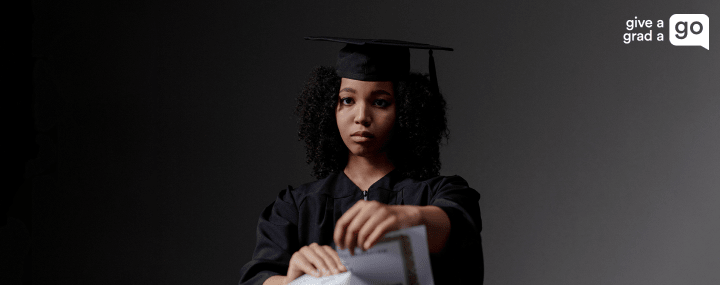Interview with Graduate Head of Business Development
1. Are the skills you gained in your degree useful to you in your job now, day-to-day?
Having gone through ruthless drama school training, I am used to long hours, criticism, rejection and hard work – all skills and traits that are essential when working in any business.
A lot of prospective employers tend to forget the rigorous training actors go through. It was refreshing to meet this company at interview, they genuinely appreciated the hard work I had achieved.
2. How much did you know about the IT and tech industry before starting this job?
Specifically within the sector we operate in, I didn’t know anything. I can safely say that I am getting confident with the technology we provide and know how to communicate it in a human and understandable way. I just ensure I remain open and inquisitive to make sure I learn as much as I can. Take a look at these free courses to help with upskilling.
3. What advice would you give someone on the job hunt looking to get into a particular industry without the ‘relevant’ degree?
As long as you can show you have a valuable skill-set then this should be more important than what “degree” you have. During my four months of interviews (ugh!) I focussed on showing I was confident, motivated and an approachable team player, I was pleased to wait until the right position came along.
Business in my mind is about being an adaptable team player with a thirst for knowledge and not being afraid to say ‘I don’t know’. We’re always learning and growing after all…
On the other hand, if an employer asks ‘why would you like to work for us?‘ you don’t want your only reason to be “because i’ve got a relevant degree”, it’s much more than that!
4. What (if anything) has surprised you about working in the IT and tech sector?
I’m having a lot of fun! (Is that bad to say?) I’m lucky enough to work in a company with a great company ethos and collaborative work ethic.
We work hard, achieve big and have the Spotify playlist on standby. It was a big surprise when freedom and trust was so easily given, and makes me work hard to keep, maintain and grow a strong working relationship with my colleagues.
5. What do you imagine people think when they hear ‘IT and tech’?
I imagine with shows like ‘The Big Bang Theory’, our idea of the technology industry could be “nerdy” or along those lines. Though, it depends where you are within the company, where your passion lies and what skills you can personally bring to that company.
I head up the business development side of the company and while I am working in a digital and technical field, the nature of my job would be the same in any company and any industry.
The technology industry is exciting, fast paced and constantly on the brink of discovery and expansion – who wouldn’t you want to be a part of that?
Take a look at what graduate technology roles there are available.
6. Do you think you have any unique opportunities due to working in a smaller tech company that you wouldn’t have had exposure to in a larger company?
Absolutely!
I couldn’t feel stronger about this and it only strengthens the idea that I made the right decision to join this company.
Having a say in the strategic development and revenue growth of the company brings with it a lot of responsibility and is great to be a part of.
We are also currently re-branding the whole company, which is a huge undertaking and to be hands-on and have a say in how a company should be branded is fantastic. Responsibility like this might not be as hands on in a larger organisation.
You get the sense that you are a part of something organic. We are a small company doing big things.
Check out some of the other benefits of working in a startup.
7. What would you tell someone who may not have considered a career in the tech industry previously?
No one should ever be closed minded and not open to think outside the box. I encourage diversity and experience, so why not give it a try – you can always say no if it’s not for you.
8. Any last bits of advice?
Interviews are a learning curve and I look back to my first-ever interview and cringe.
Be prepared – of course and do your homework – then throw it out the window and have a genuine conversation about what skills you can bring to the table and prove to them why they should hire you.







